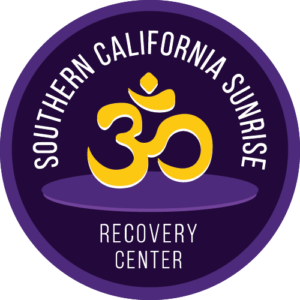Military veterans, recognized for their valiant service and dedication, often face challenges upon their return to civilian life. One of the pressing issues is substance abuse. Recent data indicates that approximately 70% of veterans diagnosed with a substance use disorder (SUD) in the past year did not pursue or receive treatment. This underscores the significant gap in accessible and effective treatment provisions for veterans.
Substance abuse among veterans arises from a tapestry of factors, ranging from firsthand exposure to traumatic events to the multifaceted challenges of reintegrating into civilian life. Through this article, we endeavor to shed light on the causative factors behind substance abuse in veterans, identify the substances predominantly misused, and elucidate available therapeutic interventions. Further, spotlighting the integral services of Tres Vistas Recovery in San Juan Capistrano, we highlight their specialization in outpatient care tailored for those battling substance misuse, positioning them as a beacon of hope and a dedicated veterans rehab for those in need.
Why Do Veterans Abuse Drugs And Alcohol?
Veterans have experienced situations that most civilians can’t even imagine. The stress of combat, witnessing loss, and the general hardships of military life can be immensely challenging. Upon returning home, these challenges continue. They often linger, manifesting in various ways.
- PTSD (Post-Traumatic Stress Disorder): Many veterans have PTSD, a mental health condition triggered by witnessing traumatic events. To cope with the overwhelming anxiety, flashbacks, and night terrors, some turn to drugs or alcohol as an escape. This interplay between PTSD & alcohol abuse in veterans is a concerning pattern that necessitates focused interventions.
- Physical Pain: In the line of duty, physical injuries are common. Some veterans become dependent on prescription painkillers, which can subsequently lead to opioid addiction.
- Adjustment Issues: Transitioning from military to civilian life is not always smooth. Veterans often feel out of place or struggle to relate to those who haven’t served. This isolation can push some towards substance abuse.
Research focusing on Vietnam combat veterans with PTSD indicated a direct link between the emergence of PTSD symptoms and the onset of alcohol and substance misuse, suggesting that the psychological distress from traumatic experiences significantly influences the likelihood of turning to substances as a coping mechanism.
Common Substances Veterans Abuse
According to the Substance Abuse and Mental Health Services Administration, among veterans with a substance use disorder, 4 out of 5 veterans grappled primarily with alcohol use. While veterans can be susceptible to a spectrum of drugs and alcohol, certain substances stand out as more prevalently abused:
- Prescription Opioids: As mentioned earlier, pain management can lead veterans down the path of opioid misuse.
- Alcohol: Easily accessible, alcohol can be a quick solution for those trying to numb pain or cope with stress. The prevalence of alcoholism in veterans is a testament to the significant challenges they face and the need for dedicated support and intervention.
- Cocaine and Methamphetamines: Some veterans use these to deal with the aftermath of traumatic experiences or to stay alert during combat.
- Marijuana: Some veterans use marijuana to manage PTSD symptoms or chronic pain.
How to Help a Veteran with Substance Abuse
Supporting a veteran battling substance abuse requires understanding, patience, and proper resources. Here are the steps you can take:
- Open a Line of Communication: Encourage them to talk about their experiences and feelings. Listening can make a huge difference.
- Educate Yourself: The more you know about PTSD and substance abuse, the better equipped you’ll be to help.
- Seek Professional Help: Encourage your loved one to see a therapist or counselor. They can provide coping strategies and therapy tailored to veterans’ unique needs.
Treatment for Veterans with Substance Abuse
Thankfully, numerous treatment options are available, tailored to the specific needs of veterans:
- VA Programs: The Department of Veterans Affairs offers treatment programs focusing on veterans’ unique experiences and needs.
- Therapy: Cognitive Behavioral Therapy and EMDR (Eye Movement Desensitization and Reprocessing) have proven to be particularly effective treatments. Notably, there’s a well-documented link between PTSD and substance abuse, and these therapies often address both concerns, providing holistic healing.
- Support Groups: Interacting with peers with similar experiences can be immensely therapeutic. For veterans, joining support groups offers not just a chance to share and unburden but also to find a sense of belonging and mutual understanding in their journey toward recovery.
Outpatient Substance Abuse Treatment – Tres Vistas Recovery
For those in the San Juan Capistrano area, Tres Vistas Recovery offers an excellent option for outpatient rehab. Specializing in PHP (Partial Hospitalization Program) and IOP (Intensive Outpatient Program) levels of care, Tres Vistas caters to individuals, including veterans, who are grappling with substance abuse.
The dedicated team at Tres Vistas understands the unique challenges veterans face and provides tailored treatment programs to address PTSD, trauma, and the root causes of addiction. By opting for outpatient treatment, veterans can receive the care and support they need while maintaining independence and connection to their community.
Veterans face unique challenges when it comes to substance abuse. Understanding these challenges is the first step in offering the proper support and treatment. At Tres Vistas Recovery, we’re committed to helping our heroes heal. If you or a loved one is a veteran struggling with substance abuse, reach out today.

Tracey Kane is an Associate Marriage and Family Therapist and Assistant Clinical Director at Tres Vistas Recovery. With over 11 years of experience in the field of addiction treatment, Tracey has dedicated her career to helping individuals struggling with substance abuse and mental health issues.












